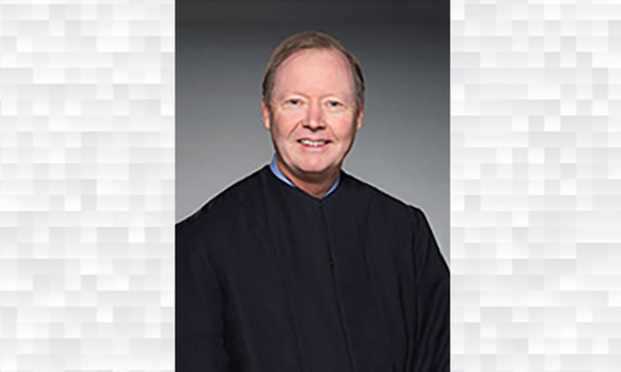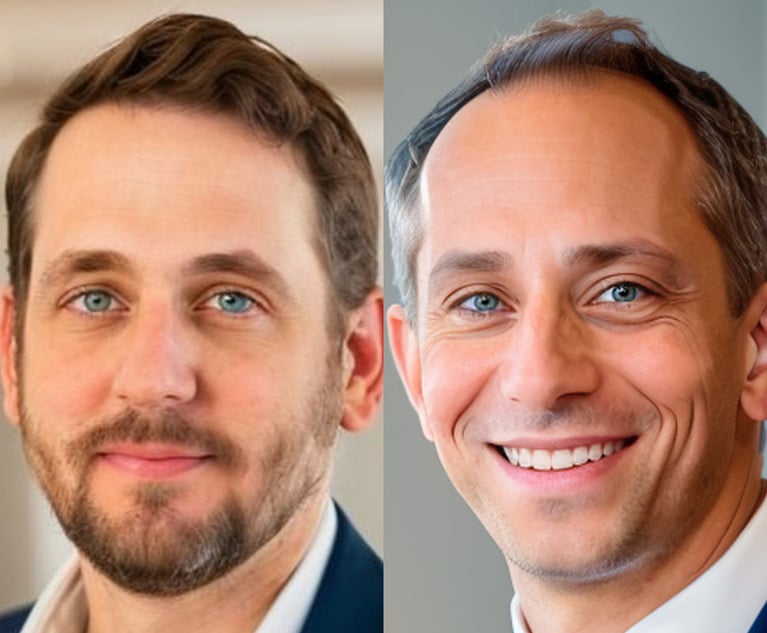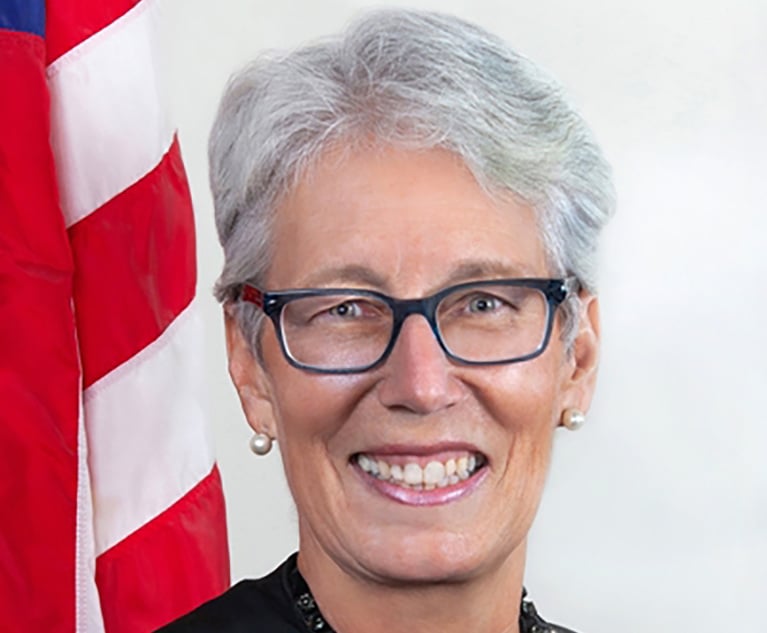Seitz Seen as Leading Contender for Chief Justice, as JNC Vets Large Field of Applicants
The search for the next chief justice of Delaware's Supreme Court has produced a larger-than-normal pool of applicants and generated some speculation surrounding the state's most prominent jurists.
September 20, 2019 at 02:17 PM
6 minute read
The original version of this story was published on Delaware Law Weekly
 Justice Collins J. Seitz, Jr.
Justice Collins J. Seitz, Jr.
The search for the next chief justice of Delaware's Supreme Court has produced a larger-than-normal pool of applicants and generated some speculation surrounding the state's most prominent jurists.
According to sources, Delaware Supreme Court Justice Collins J. Seitz Jr. was considered to be a leading contender to succeed Leo E. Strine Jr. at the helm of Delaware's judiciary, sources said this week. However, Delaware Supreme Court Justice Karen L. Valihura and Delaware Superior Court President Judge Jan R. Jurden were also rumored to be in the running.
Chancery Court Chancellor Andre G. Bouchard had also expressed interest, one source said, but there was some thought that Bouchard's reputation for successfully leading the nation's preeminent business court made it more likely that he would continue on in his current role.
Typically a closely guarded process, the judicial nominating commission's evaluation of potential candidates this year has been particularly secretive, given the importance of the chief justice job, and little is known about who had formally submitted their names for consideration.
What is known, however, is that the volume of applications for the $206,000-per-year position is said to be massive. That's partially because JNC's Aug. 22 call for applications said that candidates for chief justice would also "be considered simultaneously by the commission for a potential derivative vacancy in the office of justice."
Sources said the language of the JNC's notice likely indicated an intention by Gov. John Carney to elevate a current justice on the court and then back-fill that vacancy with a candidate from the field of applicants for chief justice. Such a move would avoid having to reopen the nomination process and allow Carney to bring the Supreme Court back to full strength in "one fell swoop."
But it also means that candidates weren't necessarily applying for the chief justice opening, which traditionally carries a more limited profile for an ultimate nominee. Instead, they were also applying to serve as a justice on the court, a position that is usually open to attorneys with broader ranges of background and experience.
Under Delaware rules, the JNC was expected to vet applicants and eventually forward a shortlist of candidates to Carney to make his final selection.
Historically, governors value Chancery Court and corporate law experience when selecting chief justices. Strine had served as chancellor of the Court of Chancery before joining the high court in 2014 and worked as a corporate litigator with Skadden, Arps, Slate, Meagher & Flom in private practice.
Former Delaware Supreme Court Chief Justice Myron T. Steele, who served from 2004 to 2014, had a similar pedigree, and former Delaware Supreme Court Chief Justice E. Norman was a leading member of the corporate bar and a partner with Richards, Layton & Finger when he was appointed in 1992.
Seitz, a member of the Supreme Court since April 2015, seems best positioned among the court's current judges to fit the bill. A founding partner of Seitz Ross Aronstam & Moritz, Seitz regularly litigated corporate, commercial and intellectual property cases and long advised clients on issues of Delaware corporate law. According to his online bio on the Supreme Court website, both federal and state courts often appointed him as a master and trustee to oversee complex corporate, commercial and intellectual property cases.
Valihura, also known for her expertise in constitutional law, likewise has a strong background in complex commercial litigation and corporate law, having worked as a partner at Skadden, Arps, Slate, Meagher & Flom before joining the bench in 2014. However, Valihura is a registered Republican, and Carney, a Democrat, is under no obligation to name a candidate outside his own party.
Should Carney nominate a current justice, he would not be nearly so confined in filling a potential "derivative" opening on the court, making that selection a true "wildcard," according to one source. The court's current members illustrate the point with a variety of experience that coveys the range of voices that are represented on the high court.
For instance, Delaware Supreme Court Justice Gary F. Traynor, the court's newest justice, worked as a public defender after years with Prickett, Jones & Elliott, practicing in the areas of criminal defense, personal injury and eventually corporate law. Delaware Supreme Court Justice James T. Vaughn Jr., on the other hand, practiced general civil and criminal law and later served as resident Judge in Kent County Superior Court.
Carney would, however, have a very real practical consideration to take into account. If he were to select a judge from the Chancery or Superior Courts for chief justice, sources said, he would likely need to reopen the nomination process, which could take months to complete.
That restriction, with Strine expected to officially step down at the end of October, made it more likely that the governor would not select a lower court judge to serve on the high court, sources said.
Carney, meanwhile, has made clear that he values diversity when filling judicial vacancies. last year, he named to women—Vice Chancellors Morgan T. Zurn and Kathaleen S. McCormick—to serve alongside Vice Chancellor Tamika Montgomery-Reeves, the Chancery Court's first African American member, on the newly expanded court of equity. Taking the court's two masters into account, the Chancery Court is now for the first time majority female.
With only one woman currently serving, the five-member Supreme Court has never featured a person of color among its ranks, since its founding in 1951 by constitutional amendment. Given Carney's track record, he could be aiming to alter that history when making his latest mark on the bench, sources said.
An appointment to the Supreme Court carry 12-year terms, and nominees must be confirmed by the Delaware Senate, though the votes are largely deferential to the governor's selection and are rarely controversial. Carney is expected to ask the legislature to call a special session to confirm his eventual nominee.
As of Friday, no such date had been set and there was no word on when Carney might announce his selection.
This content has been archived. It is available through our partners, LexisNexis® and Bloomberg Law.
To view this content, please continue to their sites.
Not a Lexis Subscriber?
Subscribe Now
Not a Bloomberg Law Subscriber?
Subscribe Now
NOT FOR REPRINT
© 2025 ALM Global, LLC, All Rights Reserved. Request academic re-use from www.copyright.com. All other uses, submit a request to [email protected]. For more information visit Asset & Logo Licensing.
You Might Like
View All
Attorneys, Professors Share Support for Chancellor Following Musk's Online Attacks
4 minute read

Jurden Announces 2025 Retirement, Capping 24 Years on Superior Court
3 minute read
Trending Stories
Who Got The Work
J. Brugh Lower of Gibbons has entered an appearance for industrial equipment supplier Devco Corporation in a pending trademark infringement lawsuit. The suit, accusing the defendant of selling knock-off Graco products, was filed Dec. 18 in New Jersey District Court by Rivkin Radler on behalf of Graco Inc. and Graco Minnesota. The case, assigned to U.S. District Judge Zahid N. Quraishi, is 3:24-cv-11294, Graco Inc. et al v. Devco Corporation.
Who Got The Work
Rebecca Maller-Stein and Kent A. Yalowitz of Arnold & Porter Kaye Scholer have entered their appearances for Hanaco Venture Capital and its executives, Lior Prosor and David Frankel, in a pending securities lawsuit. The action, filed on Dec. 24 in New York Southern District Court by Zell, Aron & Co. on behalf of Goldeneye Advisors, accuses the defendants of negligently and fraudulently managing the plaintiff's $1 million investment. The case, assigned to U.S. District Judge Vernon S. Broderick, is 1:24-cv-09918, Goldeneye Advisors, LLC v. Hanaco Venture Capital, Ltd. et al.
Who Got The Work
Attorneys from A&O Shearman has stepped in as defense counsel for Toronto-Dominion Bank and other defendants in a pending securities class action. The suit, filed Dec. 11 in New York Southern District Court by Bleichmar Fonti & Auld, accuses the defendants of concealing the bank's 'pervasive' deficiencies in regards to its compliance with the Bank Secrecy Act and the quality of its anti-money laundering controls. The case, assigned to U.S. District Judge Arun Subramanian, is 1:24-cv-09445, Gonzalez v. The Toronto-Dominion Bank et al.
Who Got The Work
Crown Castle International, a Pennsylvania company providing shared communications infrastructure, has turned to Luke D. Wolf of Gordon Rees Scully Mansukhani to fend off a pending breach-of-contract lawsuit. The court action, filed Nov. 25 in Michigan Eastern District Court by Hooper Hathaway PC on behalf of The Town Residences LLC, accuses Crown Castle of failing to transfer approximately $30,000 in utility payments from T-Mobile in breach of a roof-top lease and assignment agreement. The case, assigned to U.S. District Judge Susan K. Declercq, is 2:24-cv-13131, The Town Residences LLC v. T-Mobile US, Inc. et al.
Who Got The Work
Wilfred P. Coronato and Daniel M. Schwartz of McCarter & English have stepped in as defense counsel to Electrolux Home Products Inc. in a pending product liability lawsuit. The court action, filed Nov. 26 in New York Eastern District Court by Poulos Lopiccolo PC and Nagel Rice LLP on behalf of David Stern, alleges that the defendant's refrigerators’ drawers and shelving repeatedly break and fall apart within months after purchase. The case, assigned to U.S. District Judge Joan M. Azrack, is 2:24-cv-08204, Stern v. Electrolux Home Products, Inc.
Featured Firms
Law Offices of Gary Martin Hays & Associates, P.C.
(470) 294-1674
Law Offices of Mark E. Salomone
(857) 444-6468
Smith & Hassler
(713) 739-1250






